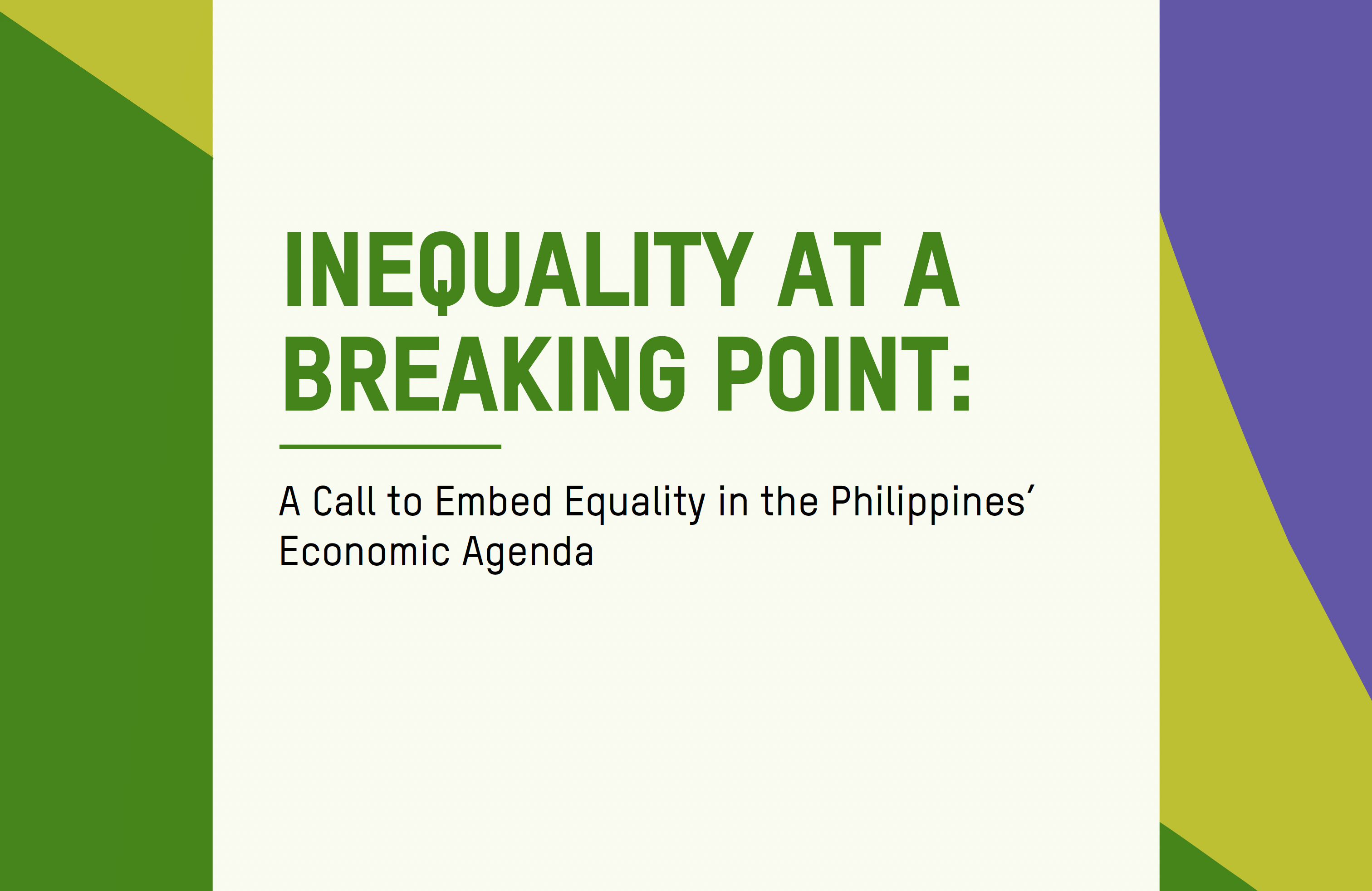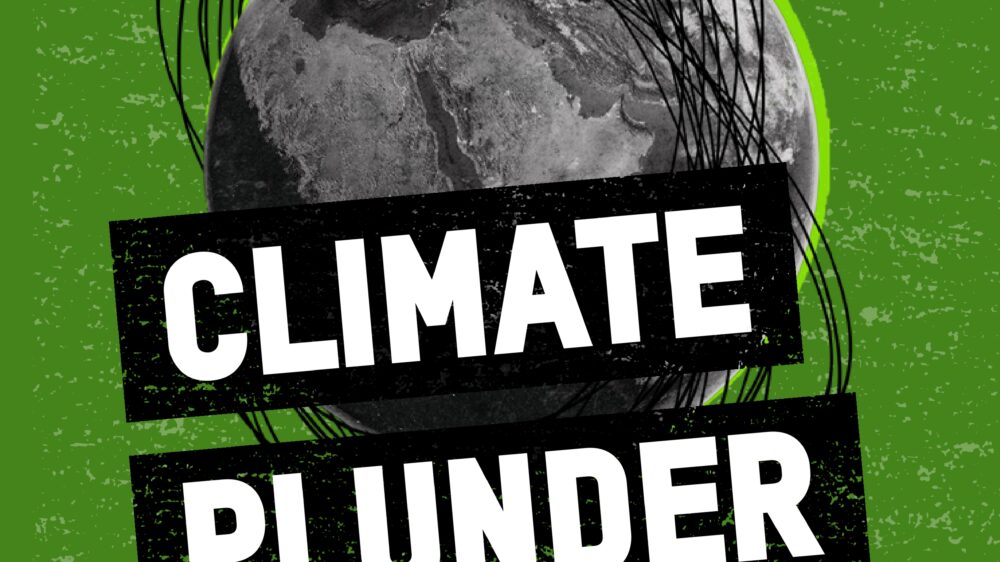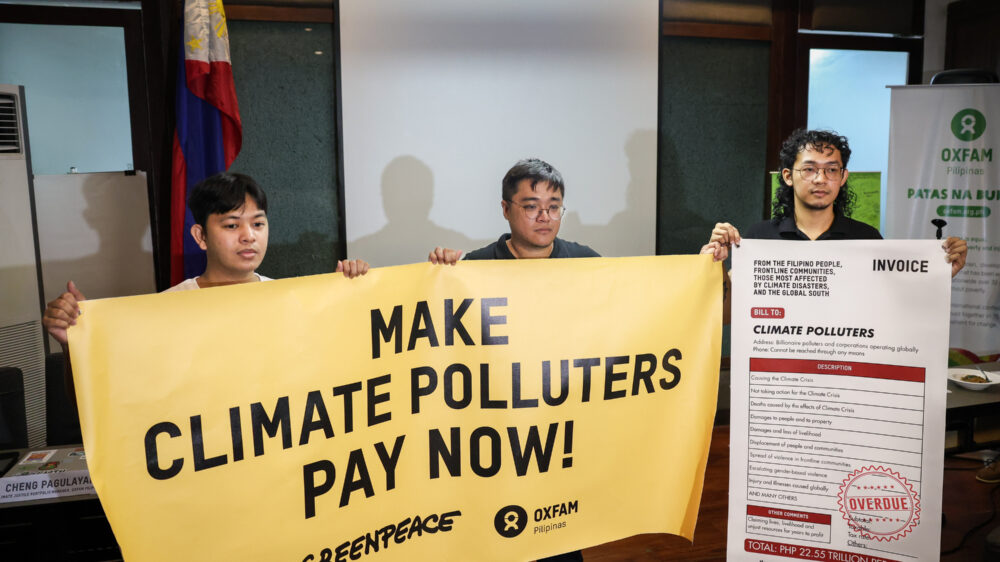We demand
climate
justice now.
We want a world of possibility, not poverty. A more equal world where any of us vulnerable to the climate crisis have the resources to survive extreme weather, and the opportunity to build sustainable futures for generations to come.
Climate change is doing irreversible harm to people and our planet. Not only is it ruining the lives of the poorest and most marginalized people, but these same people – who have contributed least to causing this crisis – are paying the highest price for its impact.
The biggest polluters, who are raking in record profits and amassing huge fortunes, must pay for the climate crisis they created and the cost of building a fairer future.
SIGN THE PETITION
Dear World Leaders,
People everywhere are suffering from the climate crisis, while the biggest polluters become even more wealthy. It is only fair to hold these polluters to account for the damage they are causing. We demand action. It’s time to make the polluters pay.
Tax the fossil fuel giants and the wealthiest 1%—those most responsible for climate chaos—and use that money to support the communities bearing the brunt of this crisis. Invest in climate solutions led by those on the frontlines. Fund a just transition. Help build a future that works for all of us, not just the powerful few.
FREQUENTLY ASKED QUESTIONS
WHO ARE THE POLLUTERS?
Fossil fuel corporations are responsible for 70% of global emissions and have been making record profits over the last year. Meanwhile billionaires are generating a million times more emissions than the average person.
HOW SHOULD GOVERNMENTS MAKE POLLUTERS PAY?
There are many ways that governments can make the richest polluters pay. For example:
- Taxing Super-Rich polluters: By introducing permanent, progressive taxes on the income and wealth of the world’s richest 1%, we can raise the trillions needed to fund a green and fair future. Taxes on this elite group could generate up to $9 trillion—money that could power renewable energy, climate adaptation, and justice for those on the frontlines. A global tax of 60% on the incomes of the richest 1% would not only raise vital funds, but also cut emissions by an amount greater than the UK’s total emissions in 2019. By targeting wealth generated from polluting industries, these taxes would also discourage investments in fossil fuels and other high-emission sectors—helping shift money away from destruction and towards solutions.
- Taxing polluting corporations: Governments should tax the excess profits of companies that are caused by their excessive control over the market, and should charge an additional higher rate of tax on corporate profits from polluting investments. Oxfam and Action Aid analysis shows that a tax of 50–90% on the windfall profits of 722 mega-corporations could have generated up to US$941bn. Governments should also stop paying corporate handouts to fossil fuel companies in rich countries.
People in low-income groups must be protected from paying the costs of the climate crisis that is not of their making.
HOW SHOULD THEY PAY?
A wealth tax on the richest 1%, with a pollution top-up:
Governments should tax wealth to dramatically reduce the cumulative emissions of the richest and raise billions of dollars that can be used to help countries cope with the brutal impacts of climate breakdown and the losses and damages incurred.
For example, an annual wealth tax of up to 5 percent on the world’s multi-millionaires and billionaires could raise $1.7 trillion a year.
In addition, steep rates of top-up taxation should be implemented on wealth generated from polluting industries. Such a tax has been proposed by economists Thomas Piketty and Lucas Chancel, who calculate that, globally, an additional tax rate of 10% on polluting assets owned by billionaires could raise at least $100bn a year and would also help to discourage investors from putting their money into polluting industries.
Tax or outright ban the planet-wrecking luxuries of the super-rich:
Governments should heavily tax, or in some cases simply ban, the climate-wrecking purchases of the ultra- wealthy including mega yachts, private jets, and space tourism.
Taxing fossil fuel corporations:
Governments should create a permanent tax of up to 90% on the excess profits of fossil fuel companies [and other polluting corporations]. The tax should kick in when profits are in excess of 10% average, and also work in combination with removing any subsidies for fossil fuel production.
HOW SHOULD THEY PAY?
A wealth tax on the richest 1%, with a pollution top-up:
Governments should tax wealth to dramatically reduce the cumulative emissions of the richest and raise billions of dollars that can be used to help countries cope with the brutal impacts of climate breakdown and the losses and damages incurred.
For example, an annual wealth tax of up to 5 percent on the world’s multi-millionaires and billionaires could raise $1.7 trillion a year.
In addition, steep rates of top-up taxation should be implemented on wealth generated from polluting industries. Such a tax has been proposed by economists Thomas Piketty and Lucas Chancel, who calculate that, globally, an additional tax rate of 10% on polluting assets owned by billionaires could raise at least $100bn a year and would also help to discourage investors from putting their money into polluting industries.
Tax or outright ban the planet-wrecking luxuries of the super-rich:
Governments should heavily tax, or in some cases simply ban, the climate-wrecking purchases of the ultra- wealthy including mega yachts, private jets, and space tourism.
Taxing fossil fuel corporations:
Governments should create a permanent tax of up to 90% on the excess profits of fossil fuel companies [and other polluting corporations]. The tax should kick in when profits are in excess of 10% average, and also work in combination with removing any subsidies for fossil fuel production.
HOW SHOULD THEY PAY?
A wealth tax on the richest 1%, with a pollution top-up:
Governments should tax wealth to dramatically reduce the cumulative emissions of the richest and raise billions of dollars that can be used to help countries cope with the brutal impacts of climate breakdown and the losses and damages incurred.
For example, an annual wealth tax of up to 5 percent on the world’s multi-millionaires and billionaires could raise $1.7 trillion a year.
In addition, steep rates of top-up taxation should be implemented on wealth generated from polluting industries. Such a tax has been proposed by economists Thomas Piketty and Lucas Chancel, who calculate that, globally, an additional tax rate of 10% on polluting assets owned by billionaires could raise at least $100bn a year and would also help to discourage investors from putting their money into polluting industries.
Tax or outright ban the planet-wrecking luxuries of the super-rich:
Governments should heavily tax, or in some cases simply ban, the climate-wrecking purchases of the ultra- wealthy including mega yachts, private jets, and space tourism.
Taxing fossil fuel corporations:
Governments should create a permanent tax of up to 90% on the excess profits of fossil fuel companies [and other polluting corporations]. The tax should kick in when profits are in excess of 10% average, and also work in combination with removing any subsidies for fossil fuel production.



